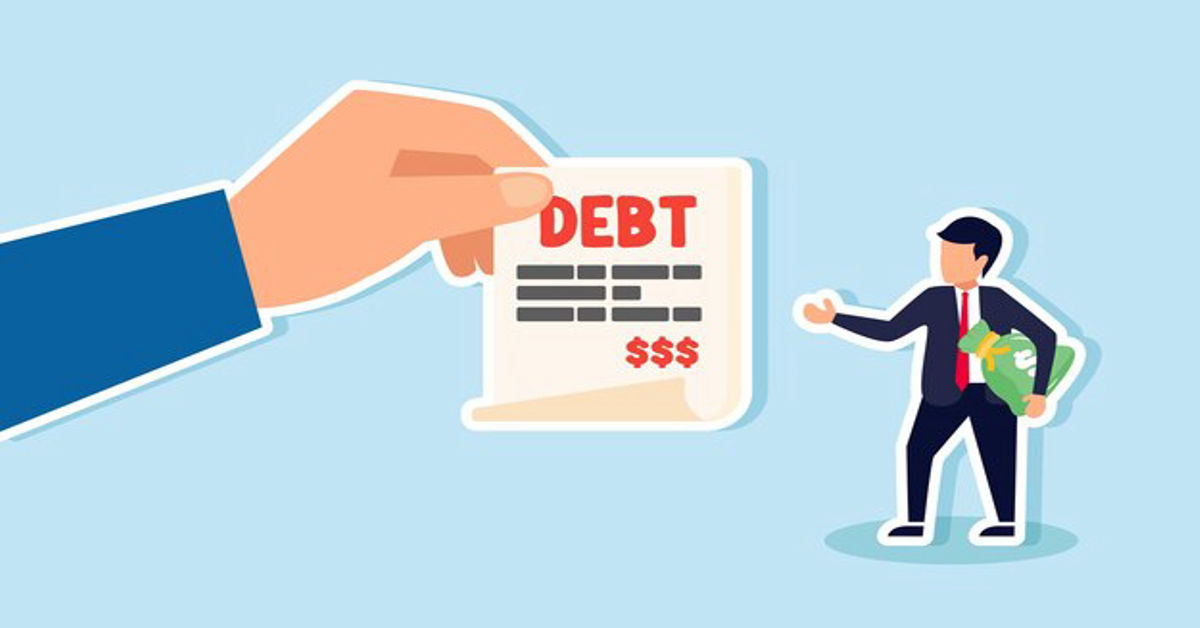For many consumers spotting the name “Unifin” in a letter, phone call or credit report can instantly spark anxiety. Debt collection has a way of feeling personal, even when it’s purely procedural, and the uncertainty around who is contacting you can amplify that stress. Unifin Debt Collector is one of the many agencies tasked with recovering overdue balances on behalf of creditors, but the experience of dealing with them doesn’t have to be intimidating. By peeling back the mystery—understanding who they are, why they’ve reached out and how the process works—you can transform what feels like a sudden crisis into a structured manageable situation.
Navigating any interaction with a debt collector requires more than just quick reactions—it demands knowledge. Knowing your legal rights, from federal protections under the Fair Debt Collection Practices Act (FDCPA) to state-specific laws, puts you in control of the conversation. Whether you aim to dispute a debt, arrange a settlement, or simply confirm the legitimacy of the claim, approaching Unifin with a clear plan can save you money, protect your credit, and prevent unnecessary stress. In this guide, we’ll walk through exactly how Unifin operates, what you should (and shouldn’t) say, and the practical steps to resolve matters on your terms.
Who Is Unifin Debt Collector ?
Unifin is a third-party debt collection agency that works on behalf of creditors to recover unpaid debts. These debts can range from credit card balances and medical bills to personal loans and utility accounts. Unifin does not typically originate the debt; instead, they are hired or have purchased the account from the original creditor. Their job is to collect the amount owed, often with added interest and fees depending on the original contract terms.
They operate within the framework of state and federal laws, including the Fair Debt Collection Practices Act (FDCPA), which sets specific limits on how and when they can contact consumers. Understanding that Unifin is essentially a middleman between you and the original creditor can help reduce some of the emotional weight of the situation. It also means there are clear rules they must follow during the collection process.
Why Unifin Might Contact You
Unifin may contact you for a variety of reasons. The most common is that your account with a creditor has become delinquent, and the creditor has either outsourced the collection to Unifin or sold the debt to them outright. Sometimes, you might not even recognize the debt because it has been transferred multiple times before landing in Unifin’s hands.
Other possible reasons include:
- A past-due credit card or loan account.
- An unpaid medical bill that has been sent to collections.
- An old utility bill you forgot to pay when moving.
- A debt that you co-signed for someone else.
- A case of mistaken identity or incorrect record keeping.
It’s important to remember that mistakes can happen. Accounts can be assigned to the wrong person, or the balance reported might be inaccurate. That’s why you should never make payments without confirming the debt is legitimate.
How Debt Collection Works
Debt collection is a process where a creditor attempts to recover money owed. When a creditor fails to collect payment after several months, they have two main options: they can hire a collection agency like Unifin to collect the debt on their behalf, or they can sell the debt to the agency at a discounted rate.
Once Unifin has the account, they begin contacting the debtor through letters, phone calls, or emails. The communication will usually include details about the amount owed, the original creditor, and instructions on how to pay. They are required by law to provide written notice within five days of their first contact.
If the debt remains unpaid, collection agencies can report the delinquency to credit bureaus, which can damage your credit score. In some cases, they may pursue legal action, which can lead to wage garnishment or bank account levies if they win a court judgment.
Your Rights Under Debt Collection Laws
Debt collectors like Unifin must follow strict legal guidelines when contacting consumers. The most important protections come from the Fair Debt Collection Practices Act (FDCPA), which includes:
- They cannot contact you at unreasonable hours, typically before 8 a.m. or after 9 p.m.
- They cannot harass, threaten, or use abusive language.
- They must identify themselves as debt collectors in every communication.
- They must provide accurate information about the debt.
- They must stop contacting you if you send a written request for them to cease communication.
In addition, the Fair Credit Reporting Act (FCRA) gives you rights related to the accuracy of your credit report. If Unifin reports inaccurate information, you can dispute it, and they must investigate within a set time frame.
How to Verify a Debt from Unifin
When you are first contacted by Unifin, the most important step is to verify the debt. This protects you from paying an incorrect or fraudulent account. You have the legal right to request a debt validation letter, which should include:
- The amount owed.
- The name of the original creditor.
- Details showing you are responsible for the debt.
- Instructions on how to dispute the debt.
Make this request in writing within 30 days of their first contact. Until they provide the required documentation, they cannot continue collection efforts.
Steps to Take When Contacted by Unifin
When Unifin reaches out, take the following steps:
- Stay calm and avoid making any immediate payments.
- Request debt validation in writing.
- Review your own records to confirm accuracy.
- Compare their information with your credit report.
- If the debt is legitimate, decide on a repayment or settlement strategy.
- If the debt is not yours, dispute it promptly with both Unifin and the credit bureaus.
Responding quickly helps you stay in control of the situation and prevents potential damage to your credit.
Key Actions to Take When Contacted by Unifin
| Step | Action | Why It Matters |
| 1 | Request debt validation | Confirms the debt is real and yours |
| 2 | Review records | Ensures accuracy before payment |
| 3 | Compare with credit report | Identifies inconsistencies |
| 4 | Plan repayment or dispute | Determines next course of action |
| 5 | Keep communication in writing | Creates a paper trail for legal protection |
Common Issues Consumers Face with Debt Collectors
Many consumers report similar problems when dealing with debt collectors like Unifin. These issues include:
- Receiving calls for debts that are not theirs.
- Being contacted at work despite requests to stop.
- Harassment through repeated phone calls.
- Incorrect debt amounts being reported.
- Collection on debts that are past the statute of limitations.
Knowing these common issues can help you recognize when your rights might be violated and take appropriate action.
How Unifin Appears on Credit Reports
If Unifin is collecting on a debt, it may show up on your credit report under the collections section. The entry will usually list Unifin as the collection agency, along with the original creditor and the amount owed. This record can remain for up to seven years from the date of the first missed payment, even if you pay it off later.
Regularly checking your credit report can help you spot collection accounts early. This gives you the opportunity to address them before they cause long-term credit damage.
Negotiating with Unifin
If the debt is valid and you want to resolve it, negotiating with Unifin Debt Collector can be an effective option. Some strategies include:
- Offering a lump-sum payment for less than the full amount.
- Setting up a monthly payment plan that fits your budget.
- Requesting a pay-for-delete agreement where they remove the account from your credit report upon payment.
Always get any agreement in writing before making a payment to avoid misunderstandings later.
Disputing Incorrect Information
If you believe the debt is not yours or the amount is incorrect, you have the right to dispute it. Send a written dispute to both Unifin and the credit bureaus. Include copies of any evidence that supports your claim, such as payment receipts or correspondence from the original creditor.
Once a dispute is filed, Unifin Debt Collector must investigate and provide proof within 30 days. If they cannot validate the debt, they must stop collection efforts and remove it from your credit report.
Preventing Future Debt Collection Problems
The best way to avoid future contact from debt collectors is to maintain good financial habits:
- Pay bills on time to avoid delinquency.
- Keep track of all accounts, even small ones.
- Regularly review your credit report for errors.
- Communicate with creditors if you are having trouble making payments.
- Avoid ignoring early notices from creditors.
Being proactive about your finances reduces the chances of having debts sent to collections.
Final Thoughts
Dealing with Unifin debt collector can be challenging, but understanding your rights and options can make the process less intimidating. By staying informed, verifying any claimed debts, and communicating effectively, you can take control of the situation. Whether you choose to dispute, negotiate, or pay, the most important thing is to act quickly and keep thorough records. Debt collection is never pleasant, but with the right approach, you can protect your financial health and move forward with confidence.
Frequently Asked Questions About Unifin
What is Unifin’s main business?
They collect overdue debts on behalf of creditors or purchase debts to collect directly.
Can Unifin sue me?
Yes, if the debt is within the statute of limitations, they may take legal action.
Will paying Unifin improve my credit score?
It may stop further damage, but the account can still remain on your report for several years.
How can I stop calls from Unifin?
Send a written request for them to cease communication.
Is it possible to settle for less than I owe?
Yes, but always get the settlement agreement in writing.







